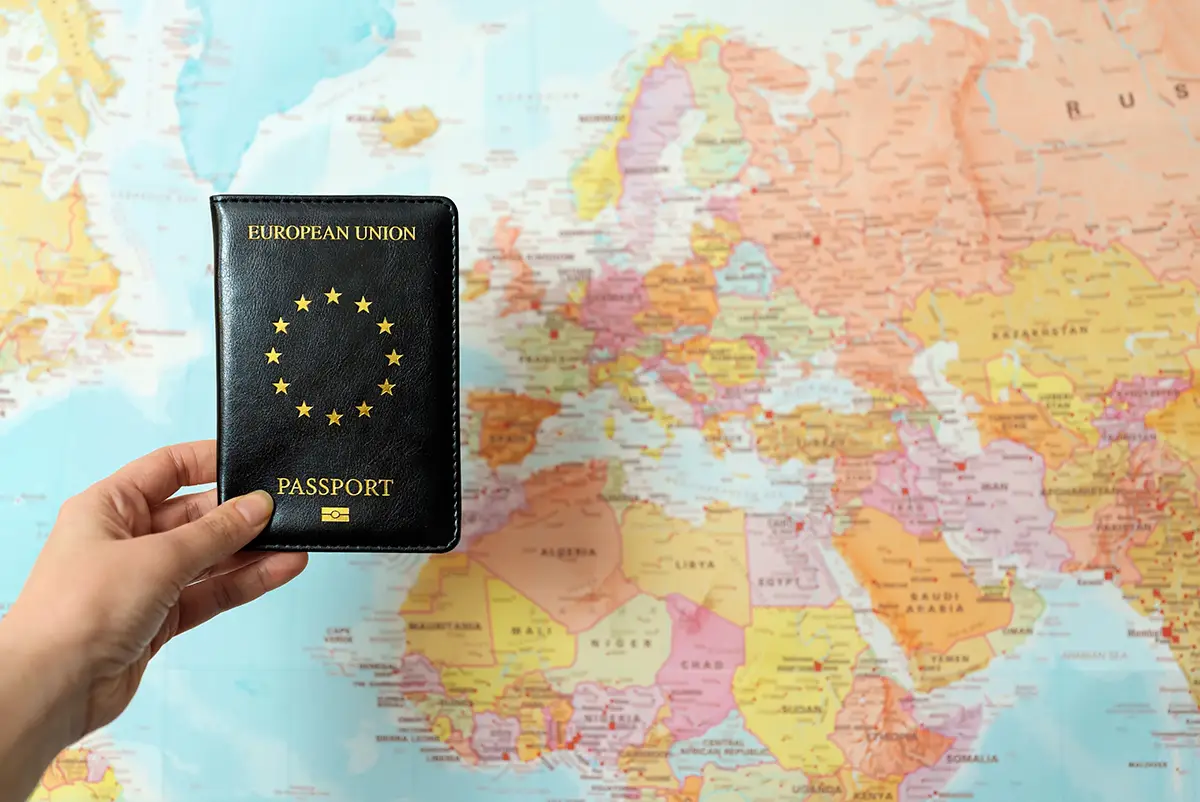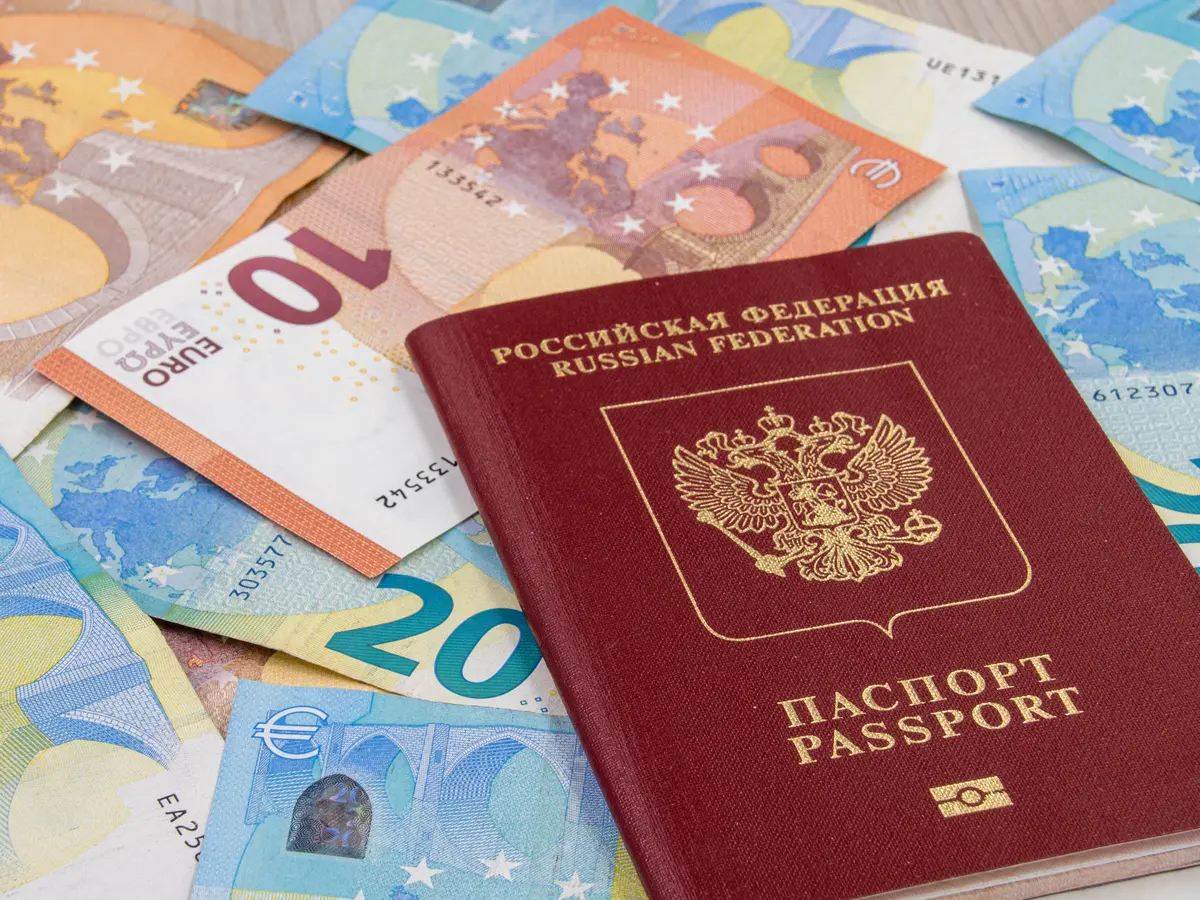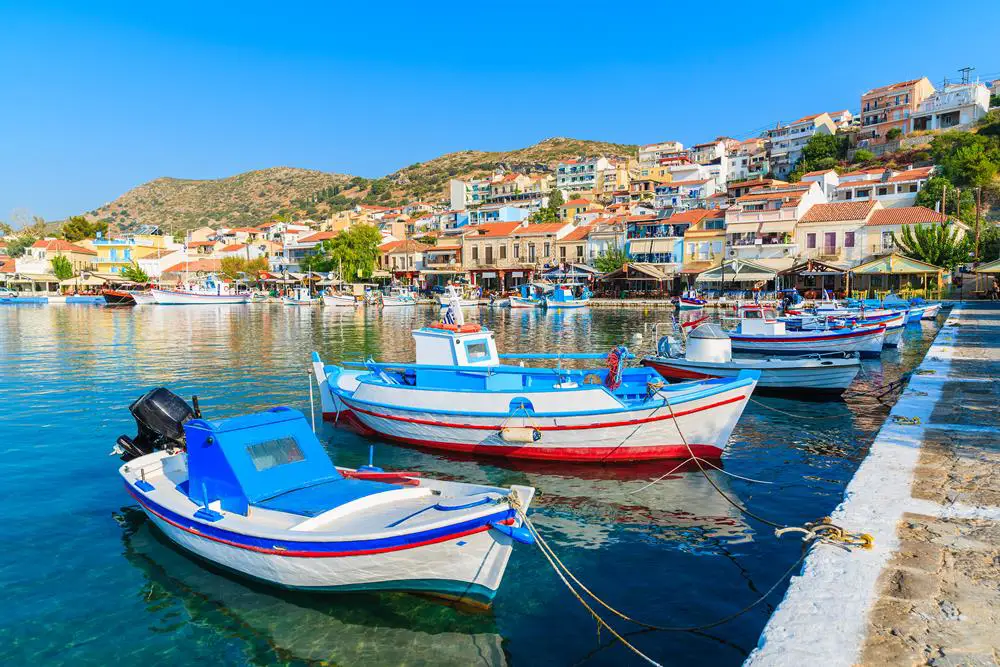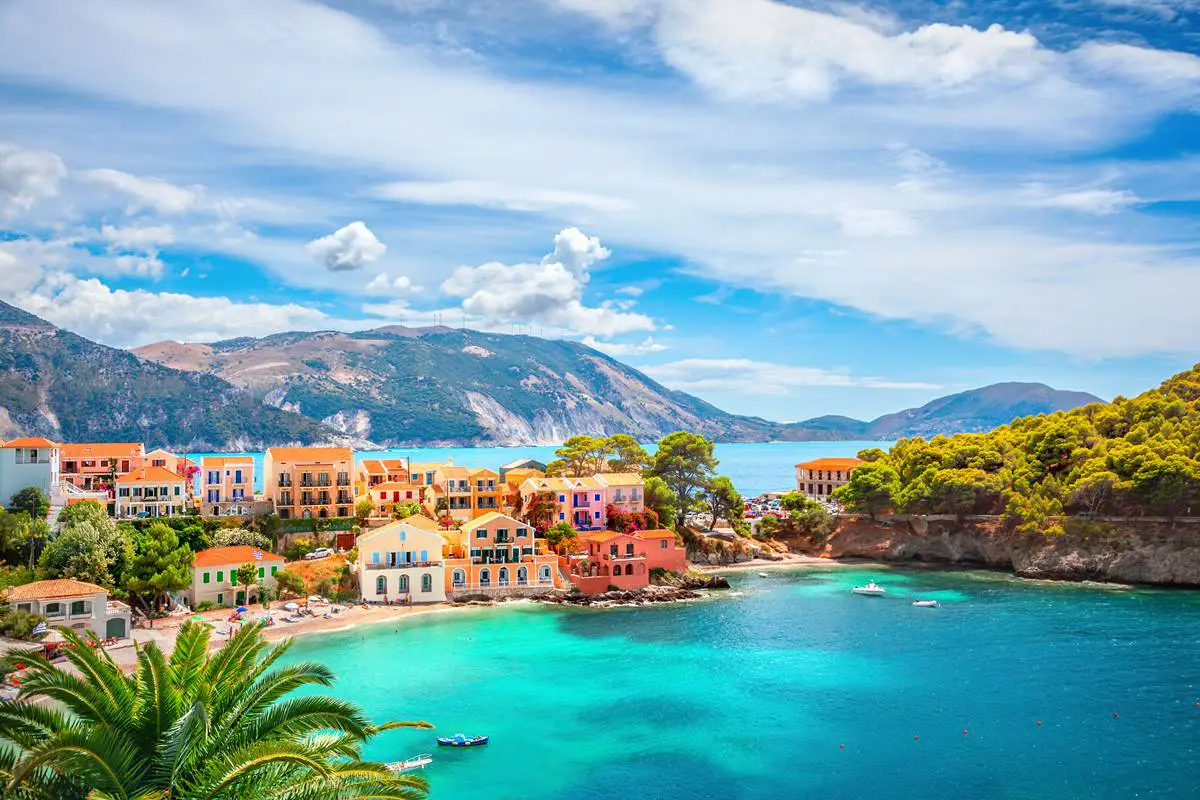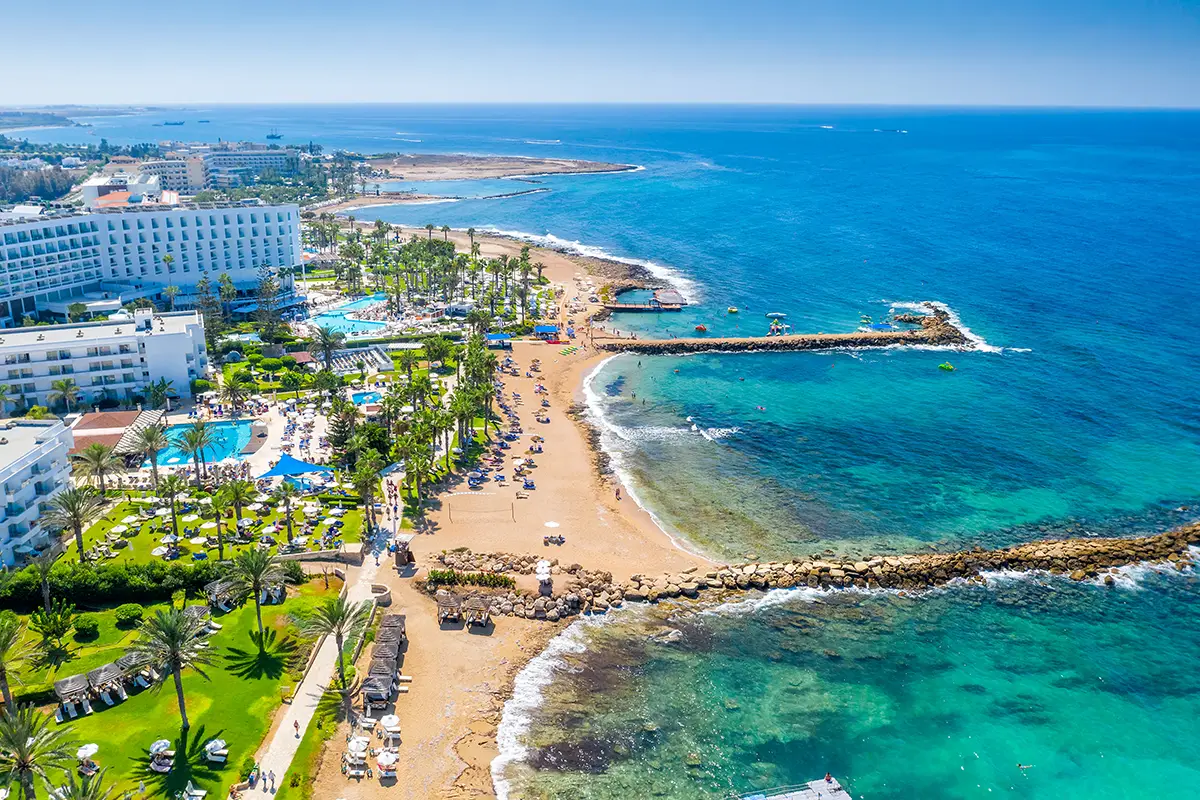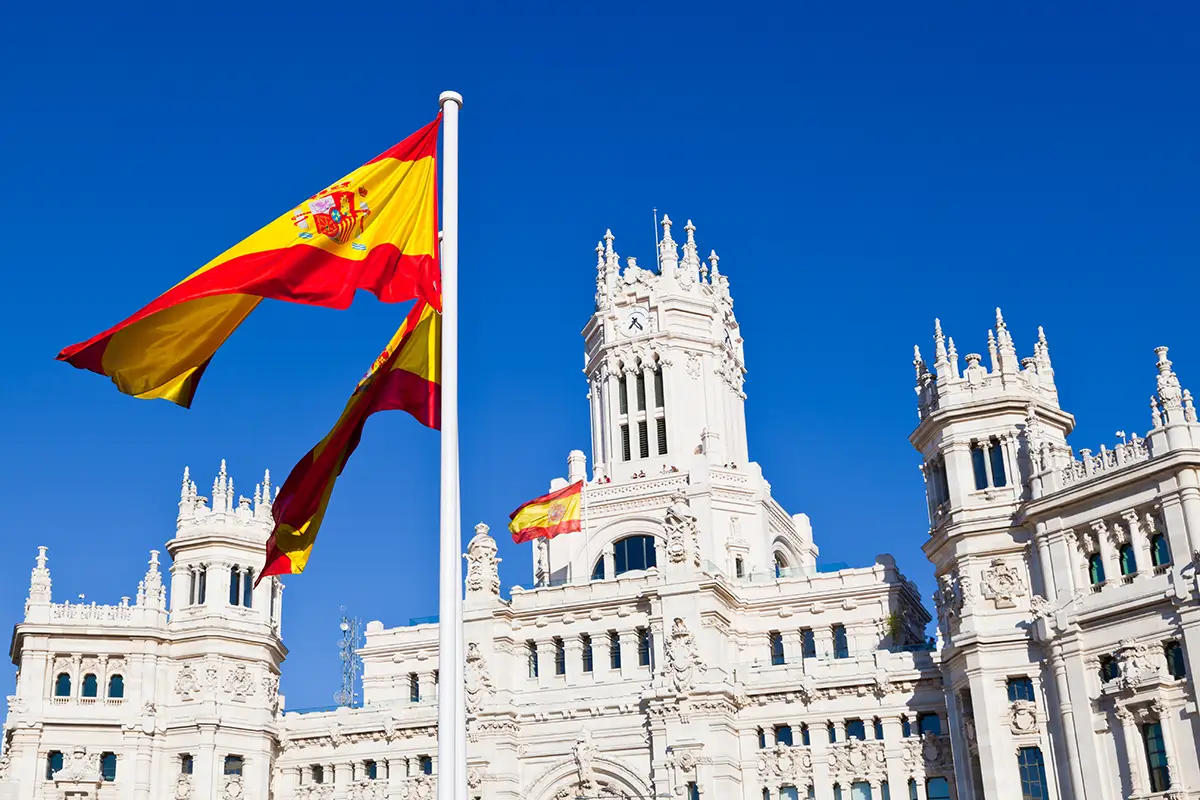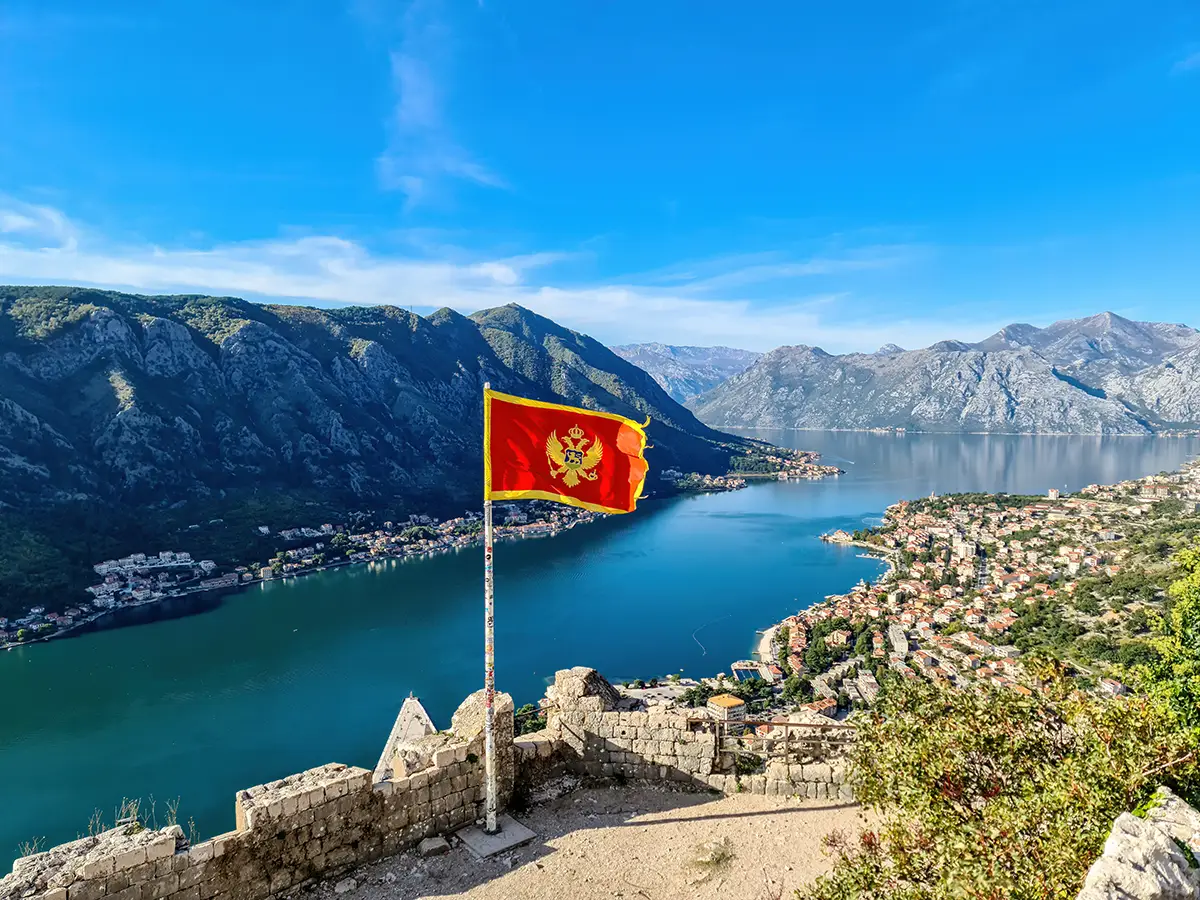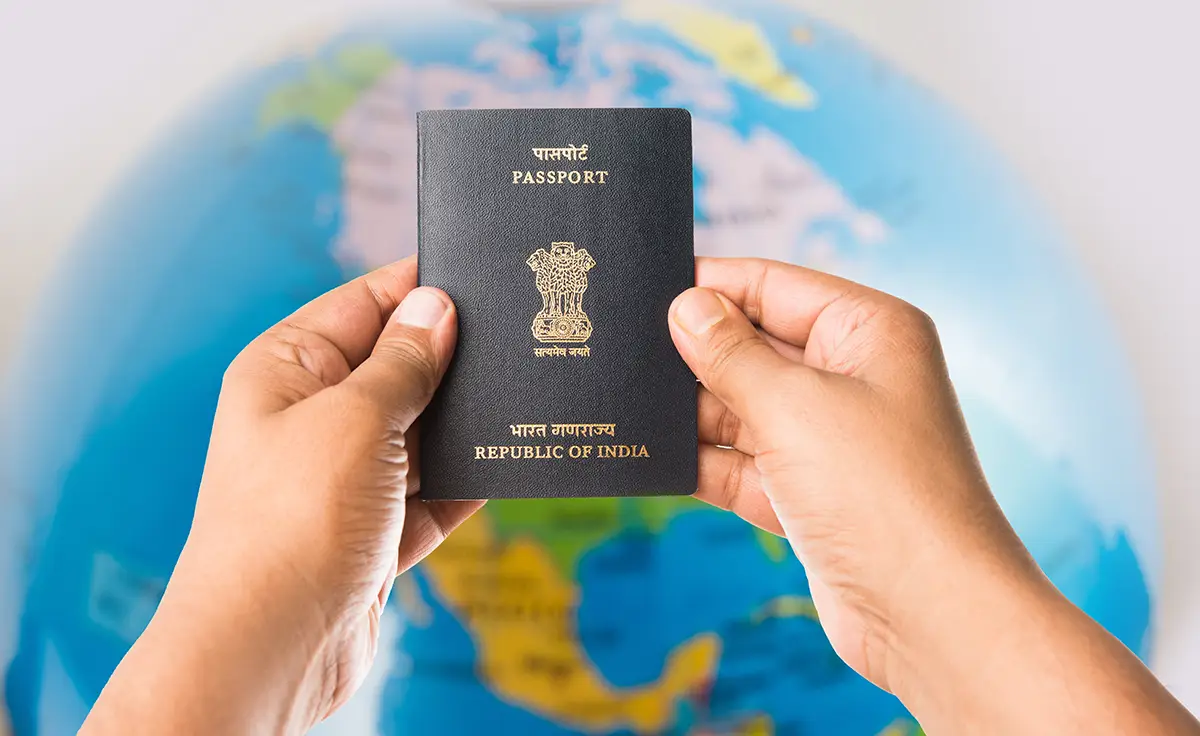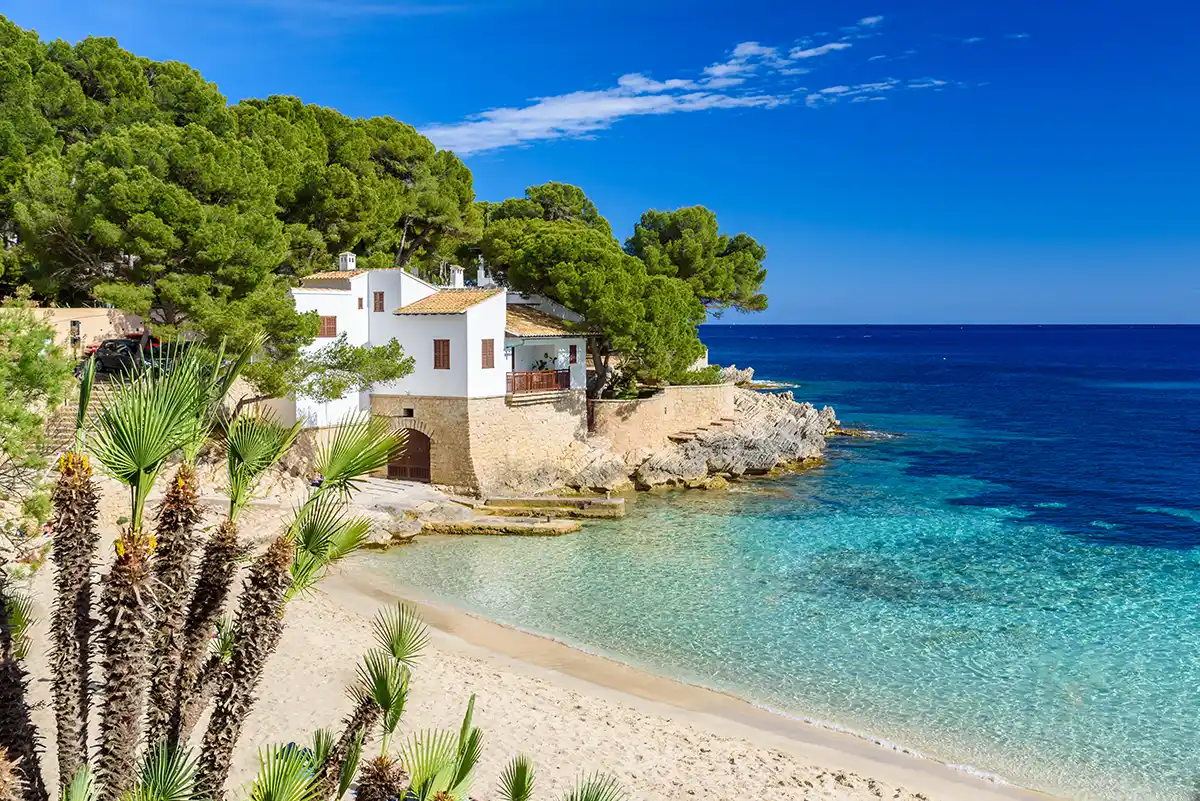What is EU Citizenship?
EU Citizenship is automatically granted to anyone holding the nationality of an EU country.
This powerful status opens doors to many benefits, including freedom of movement and the ability to live in any of the member states.
According to the EU, anyone who holds the nationality of an EU member country is automatically an EU citizen.
Im simple terms, an EU Citizen is a citizen of the 27 participating countries - with a passport that ranks among the strongest in the world.
How to get a European Passport
According to the European Commission, a third-country national is: “Any person who is not a citizen of the European Union (...) and who is not a person enjoying the European Union right to free movement”.
If you're a third-country national, here's how to get EU citizenship:
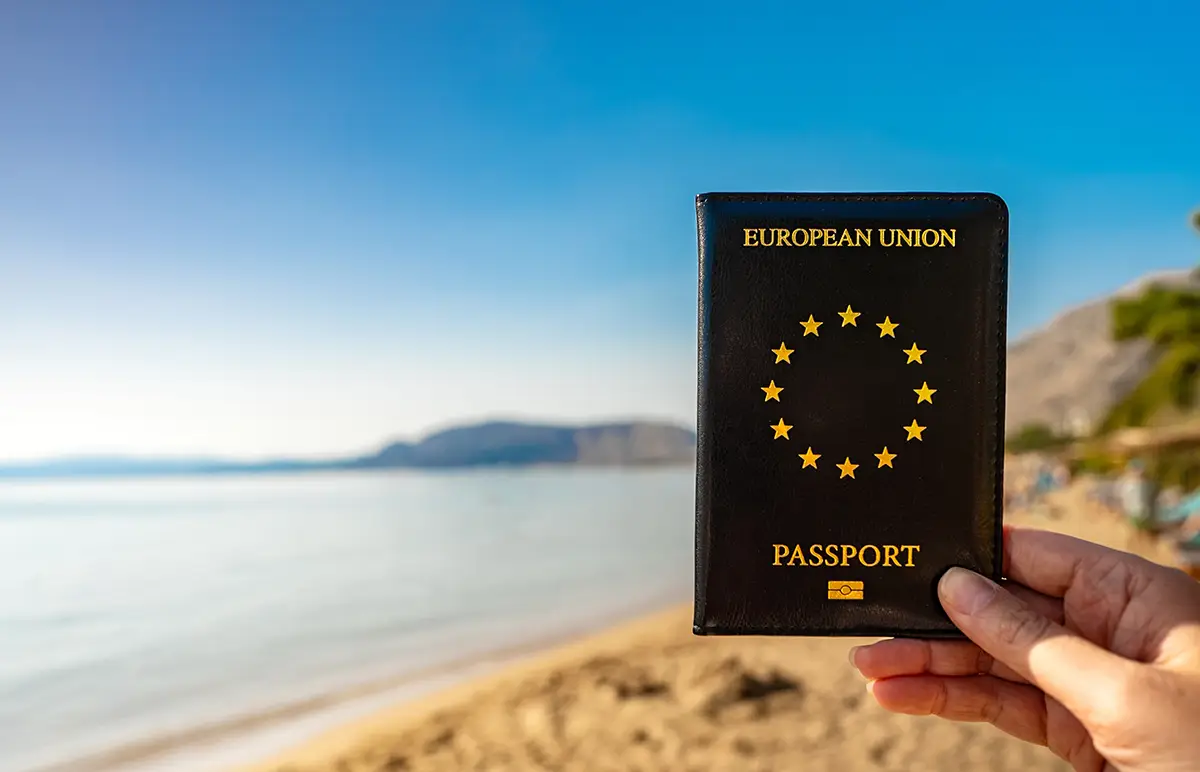
- Citizenship by Descent: If you have European ancestry.
- Marriage to an EU Citizen: Though not all countries accept marriage as a ground for citizenship.
- EU Citizenship by Investment with Residency Programs: A fast and viable way to secure EU citizenship.
For investors, the latter citizenship by investment Europe route is the only option completely under your control.
Read more:
How to Get a Second Passport: a Guide for 2025
What is the Easiest European Country to Get Citizenship?
Since the best way to gain EU citizenship is with Residency by Investment, the easiest European countries to get citizenship are all that have these investment programs, sometimes also known as Golden Visas.
Each country has its own set of requirements for applicants seeking their EU Citizenship status.
Among the most common are proof of eligibility, legal residency status, some varying degree of language proficiency, and standard documentation.
Two countries stand out for their flexibility and timeline to EU Citizenship: Portugal and Greece.
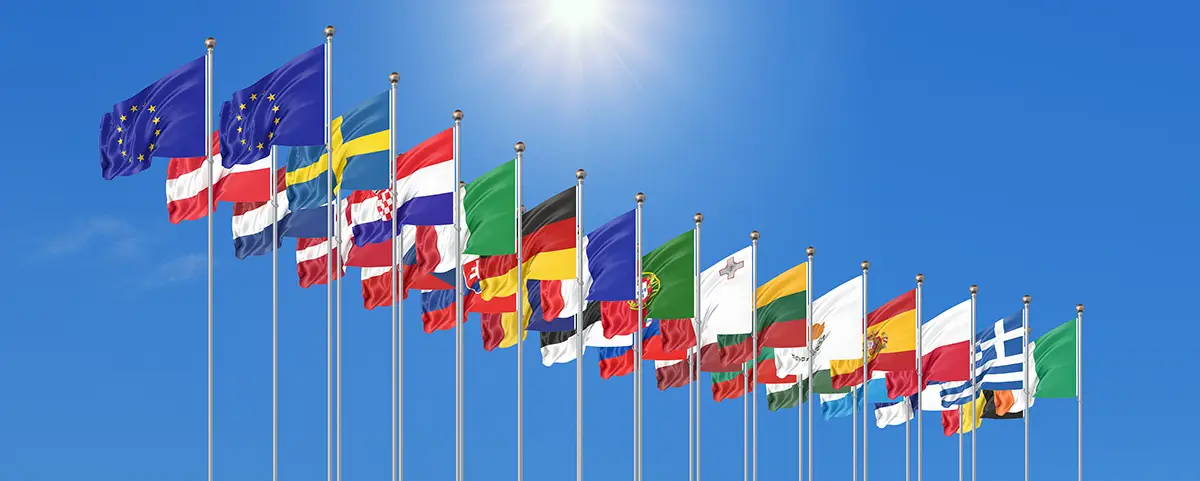
Portugal Residency Programs: The Fastest Way to Secure EU Citizenship by Investment
Portugal currently has the #3 most powerful passport in the world, letting its holders enter visa-free in 170+ countries.
Residency by Investment in Portugal is obtainable through 3 distinct programs:
- The Portugal Golden Visa, with the preferred investment option starting at €500,000;
- The D2 Visa, with variable investment amounts;
- The Investment Visa Exclusive visa option that starts at €155,000.
For those seeking an EU Passport, Portugal offers one of the fastest pathways, since you can apply for citizenship 5 years after you start your application.
Greece Golden Visa
Greece is among the most popular countries for a second residency and future EU citizenship by investment, with a passport that is also the #3 in the ranking of most powerful, unlocking visa-free entry or visa on arrival to 170 countries.
- The Greece Golden Visa, requiring only a €250,000 investment in real estate, lets you become an EU Citizen after 7 years of residency.
Cyprus Golden Visa
Besides Portugal and Greece, Cyprus is also an interesting choice, especially since it aims to become a full Schengen member in 2026.
- The real estate Golden Visa option requires a minimum €300,000 investment, though this amount may increase once Cyprus fully joins the Schengen Zone.
EU Citizenship is unlocked after 7 years of residency and 12 months of actively living on the island.
Applicants must also prove they have a B1 level of Greek, an understanding of the Cypriot culture and their real intention to reside in the Republic, among other requirements.
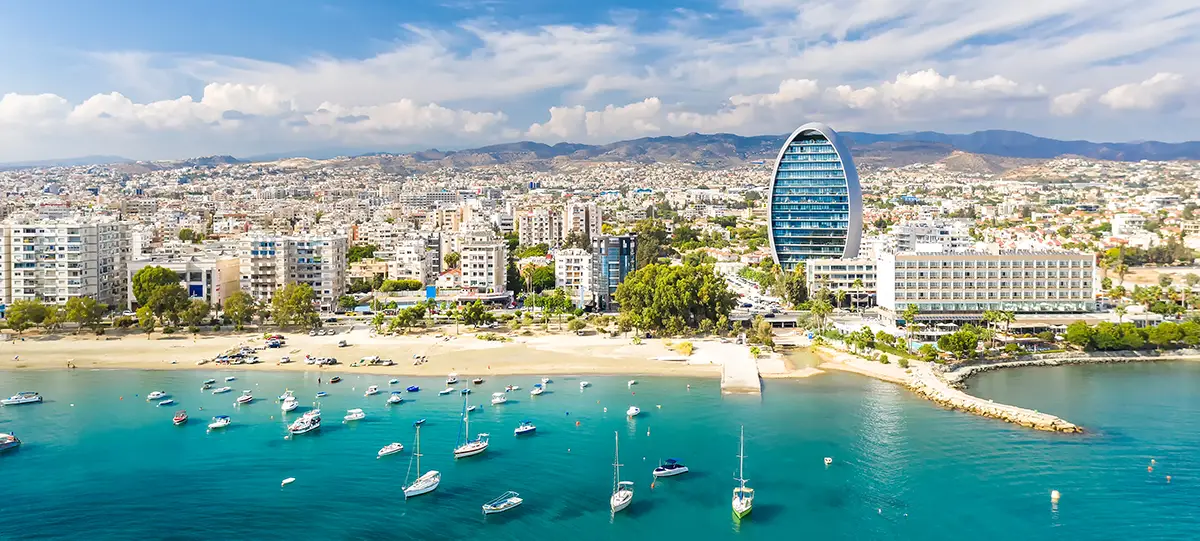
Benefits of EU Citizenship
Access to the Schengen Zone
While half the world has to worry about what what type of Schengen visas to get to get to enter the Schengen Zone, EU passport holders don't have to worry about it.
Because of the EU’s right to freedom of movement, its Citizens are entitled to live, work, and study in any of the 29 countries in the Schengen Zone: a common travel area that includes 25 of the 27 countries in the European Union (excluding Cyprus and Ireland), plus Norway, Lichtenstein, Iceland, and Switzerland.
EU Citizens don't have to worry about the Schengen 90/180 Rule, becoming residents just by informing local authorites of their intent to stay for more than 3 months.
Visa-Free Travel to Other Countries
EU Passports are among the most powerful in the world, with all 27 Passports in the top 10 out of 91, according to the Global Passport Index.
This automatically means all EU citizens are able to travel visa-free or with a visa on arrival to, at the very least, 165 countries.
Higher Standards of Living
The European Union is known worldwide for its higher standards of living.
To join, countries must meet a set of standards across important aspects:
- A strong economy;
- Readiness to join the EURO and compete in a single, common market;
- High adherence and practice of universal human rights;
- The willingness to join a transnational and cultural space.
Almost every country in the Union has public and universal healthcare coverage, access to excellent education systems, and some of the best air quality in the world.

Read more:
Healthcare in Europe – How Does It Work and How Much It Costs
Investing in the Future: The Advantages of European Education for Your Family
Countries with Best Air Quality
Safety
European Union citizens are rest assured, knowing they can roam the streets without having to concern themselves for their well-being.
According to the 2025 Global Peace Index, Europe is the safest region in the world.
Out of the Top 10 Safest Countries, 7 of them are located in Europe, and 5 of them are part of the European Union.
The other 2 countries, Iceland, and Switzerland are part of the Schengen Area, the common travel zone shared with most European Union countries.
Dual Citizenship
Countries like China or India only allow their citizens to old one passport.
Almost all the countries in the European Union let their nationals become dual citizens.
Portugal, Greece and Cyprus all allow their nationals to hold another country’s Citizenship.
Legacy for the Future
As the world harbors in the uncertainty of what the future might bring, it becomes significantly more important to ensure one’s family’s safety.
EU Citizenship is something that can be transferred onto the next generation, to one’s children and grandchildren, and beyond.
Choose Your Path to EU Citizenship by Investment
Whether you want to buy an EU passport, secure European citizenship by investment, or simply understand how to get EU citizenship, the decision comes down to your goals, budget, and desired timeline.
Is your path the Portugal Golden Visa? Or down the Mediterranean to Greece or Cyprus?
Maybe it's the D2 or our Exclusive option?
Regardless of your choice, Investment Visa is here to help you build your brighter future.
We're proud of our 100% application approval rate, which we achieve by our curated process of guiding clients from the first consultation to the moment they hold their new passport.
Frequently Asked Questions
You can invest to get Citizenship in Europe.
The only way to "buy" an EU passport is by investing to get residency and naturalize as an EU citizen later on.
The best way to apply for an EU passport is with a residency investment. You can learn how to apply by contacting Investment Visa directly.
Obtaining an “EU passport” means gaining citizenship in one of the European Union’s 27 Member States, since there is no single passport issued directly by the EU.
Each country sets its own rules, but common pathways include descent, birthright,, marriage to an EU national, and investment-based programs (sometimes known as Golden Visas or residency by investment.
“Easiest” can be subjective, but due to their requirements and timelines, Portugal and Greece stand out.
An “EU passport” isn’t a single unified passport issued by the European Union itself, but rather a term commonly used to describe the individual passports issued by each EU Member State.
These passports often share certain standardized features—like a burgundy cover and the words “European Union” on the cover—yet they are still issued by the specific country of citizenship.
Holding an EU passport grants you rights such as visa-free or visa-on-arrival travel to many countries worldwide and the freedom to live, work, or study in any of the 27 EU Member States.
“European citizen” is an informal term used broadly to describe anyone from the continent of Europe, including countries that may not be part of the European Union.
By contrast, “EU citizen” is a specific legal designation that only applies to individuals who hold the nationality of an EU Member State.
While anyone from Europe can be informally described as a European citizen in a general sense, only those who hold the nationality of an EU country are formally recognized as EU citizens.
European Union comprises 27 member countries which, in alphabetical order, are: Austria, Belgium, Bulgaria, Croatia, Cyprus, the Czech Republic, Denmark, Estonia, Finland, France, Germany, Greece, Hungary, Ireland, Italy, Latvia, Lithuania, Luxembourg, Malta, the Netherlands, Poland, Portugal, Romania, Slovakia, Slovenia, Spain, and Sweden.
Although all European Union citizens are from a European country, not all European citizens have EU Citizenship.
That is because being born in a European country that is not part of the European Union does not automatically grant you EU citizenship.
EU citizenship is tied to holding the nationality of an EU Member State, so if the person was born in a European country outside the EU—like Switzerland, Norway, or Serbia—they would not be considered an EU citizen unless they later acquire the nationality of an EU country.


